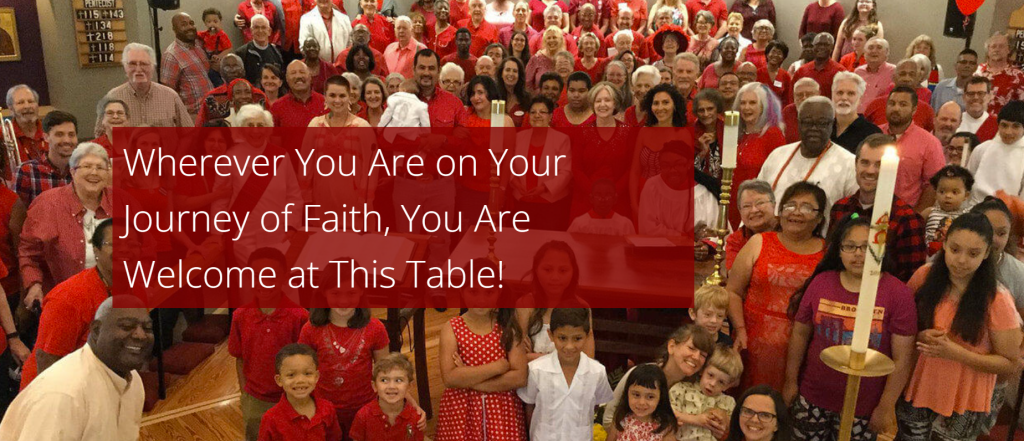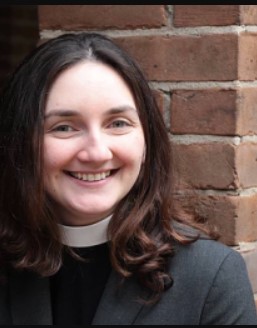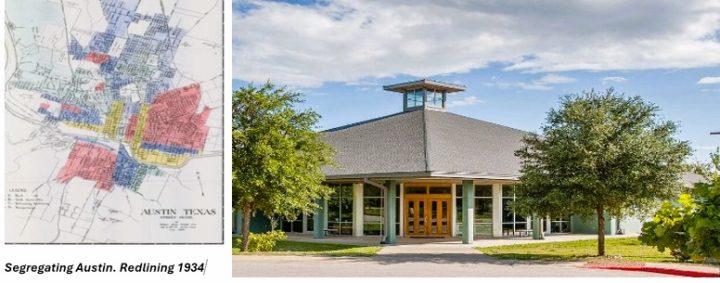“Finding hope in the practice of walking through the worst.” This was the theme of a sermon by our rector, the Rev. Eileen O’Brien, as we celebrated Founders Day at St James’ Episcopal Church in Austin, Texas last December. “There’s no pretense that injustice and torture and murder are anything other than injustice, torture, and murder.” However, “within the same world that contains these things, we can discover some kind of hope: the hope of protest, the hope of truth-telling, the hope of generosity, the hope of gesture: even in those places.”
At a time when we are assailed by so many forces aiming to divide us, we urgently need this message from Christian communities. Too often we are getting the opposite message. As Peter Wehner wrote in The Atlantic in October 2021, many American Christians have embraced the worst aspects of our culture and our politics. The disconnect of the COVID epidemic, political polarization, racial tensions, and battles over “wokeness” have all played a part. When the Christian faith is politicized, says Wehner, “churches become repositories not of grace but grievance, places where tribal identities are reinforced, where fears are nurtured and where aggression and nastiness are sacralized.”
St James’ is modeling a different way. It was our daughter-in-law who suggested we visit the church when we came to live in Austin in 2019. We felt at home the moment we walked in the door. The warmth of the welcome, the rich diversity of the congregation, the horseshoe design of the sanctuary that enables members of the congregation to see each other and the quality of the music captured us. The fact that Rev. Eileen grew up in Richmond, VA where we lived for 40 years was an added plus.

The church plays an important role in the faith life of Austin. It is an intentionally inclusive community with people of all ethnicities, mixed race couples, gays, and people from many parts of the world. There is a daily service in Spanish; and the “One Human Race” initiative has enabled many local congregations to have honest and productive conversations about the history and ongoing legacy of racism in the city. The Welcome Table program helps to increase access to education, mental and physical health, and quality food for children, families, and the elderly in East Austin.
Rev. Eileen reminded us of the power of stories, “stories of belonging that move us towards each other, not from each other; ways of being human that open up the possibilities of being alive together; ways of navigating our differences that deepen our curiosity, that deepen our friendships, that deepen our capacity to disagree, that deepen the argument of being alive. This is what we need. This is what will save us.”

On Founders Day we celebrated one such story. It is a story of courageous struggle by Blacks facing discrimination by white churches. In 1941 Austin was a segregated city. All of the Episcopal churches were on the west side of what is now Interstate 35, the dividing line between downtown and east Austin, white and black. After being rejected by the white Episcopal churches, 16 Black men and women, faculty and students, of Samuel Huston College (now Huston-Tillotson University, a historically black university and the first institute of higher learning in Austin), began meeting together to pray and read scripture. This community became known as the Church of the Advent.
As Rev. Eileen recalled, two members, James and Bertha Sadler Means, wanted to be married in an Episcopal Church. The Rev. John D. Epps was providing clergy support for this new faith community. He wrote to his colleagues at St. David’s and All Saints to see if they might permit this church without a building to hold a wedding in one of their churches. “You need not concern yourselves with being present at the event,” he reassured them, “I have served as a sexton at Christ Church in Tyler TX, and I will be sure that all is restored to good order and locked up appropriately.” Despite these assurances, the answer was “No.” But the wedding went on anyway, and the Church of the Advent continued to gather wherever they could: in people’s homes, at the YMCA and finally, in 1947, in a building on the corner of what would become the campus of Huston-Tillotson University, where the church took on the name of St. James’ Episcopal Church.
Those early pioneers and their children became “prophet voices for transformation” in the city, breaking beyond the bounds of east Austin. “They found the strength to risk further rejection in order to work for the desegregation of St. Stephen’s School, St. Andrew’s School, the University of Texas athletics, the skating rink, and Barton Springs [Austin’s famous spring-fed swimming pool].
“The pioneers of St. James’ had faith that if you voted and if you changed the laws, you would change society.” But, “they also knew that there were challenges and there will always be challenges before us that we cannot legislate or vote our way out of. Part of what is before us are spiritual questions, questions that go back to the essence of being human and to our baptismal covenant. What is human dignity and how do we make space for everyone to share in it? How are we to be with the enemy – the one who refuses our human dignity – who seeks to destroy it?”
These are the constant questions for those of us committed to overcoming barriers of racism, white privilege, and economic disparity. Rev. Eileen told us,“The building of beloved community, grounded in the hope of protest, the hope of truth-telling, the hope of generous and self-sacrificial love, is our most faithful response.”
A lifetime of working for racial healing, equity, and for community building in many parts of the world, convinces me that an essential part of this process is creating welcoming spaces where we can hear each other’s stories. These stories may be challenging or uncomfortable, but as we learn to listen deeply and without judgement, we may indeed find there is more that unites us than divides us. We can walk together to build a new future.
